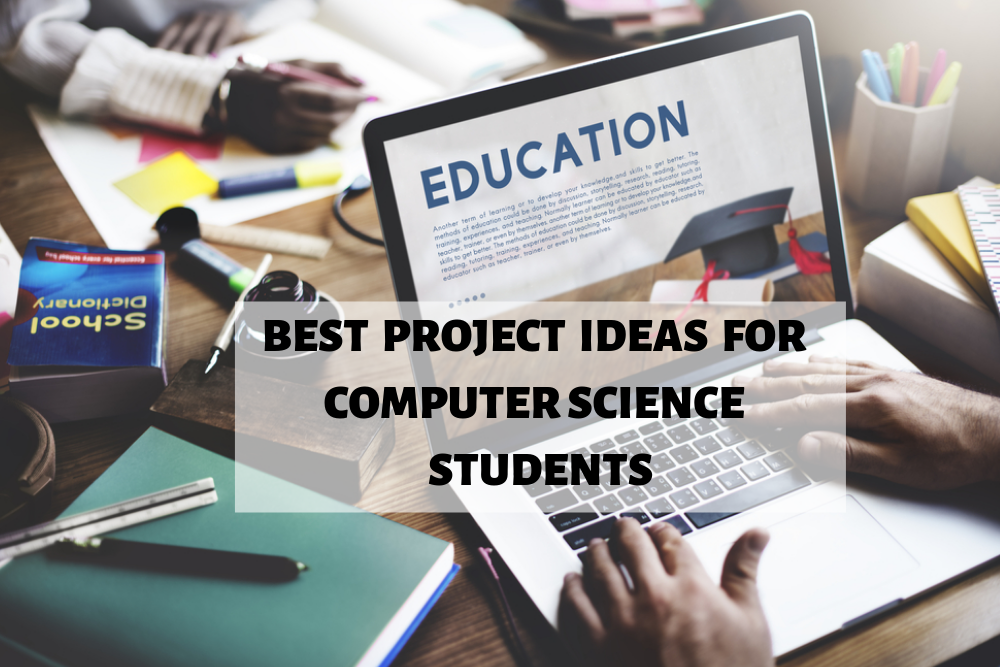Ideas for Computer Science Projects in 2025
Related Articles: Ideas for Computer Science Projects in 2025
- Cheap And Easy Dinner Ideas For A Family Of 4 In 2025
- Baby Shower Gifts Ideas For 2025: A Comprehensive Guide
- Cheap Wedding Ideas NJ 2025: A Budget-Friendly Guide To Your Dream Day
- About Us Ideas For Websites In 2025: Crafting A Compelling Narrative
- Cheap Flower Arrangements For Weddings: A Guide To Budget-Friendly Beauty In 2025
Introduction
With enthusiasm, let’s navigate through the intriguing topic related to Ideas for Computer Science Projects in 2025. Let’s weave interesting information and offer fresh perspectives to the readers.
Table of Content
Video about Ideas for Computer Science Projects in 2025
Ideas for Computer Science Projects in 2025

Introduction
As we approach the year 2025, the field of computer science is rapidly evolving, presenting a wealth of opportunities for innovative and impactful projects. From artificial intelligence and machine learning to cybersecurity and cloud computing, the possibilities for groundbreaking research and development are endless. This article presents a comprehensive list of ideas for computer science projects that are both challenging and relevant to the emerging trends of the industry.
Artificial Intelligence and Machine Learning
- AI-Powered Healthcare Assistant: Develop an AI-based system that can assist healthcare professionals in diagnosing and treating patients, providing personalized recommendations based on medical data and patient history.
- Self-Driving Car Simulator: Create a realistic simulation environment for testing and developing autonomous vehicle algorithms, enabling researchers to evaluate performance under various traffic conditions and scenarios.
- Machine Learning for Language Translation: Build a machine learning model that can translate text and speech between multiple languages with high accuracy and fluency, facilitating global communication.
- AI-Generated Art and Music: Explore the intersection of AI and creativity by developing algorithms that can generate unique and aesthetically pleasing art and music, pushing the boundaries of artistic expression.
- Predictive Analytics for Business: Utilize machine learning techniques to forecast market trends, consumer behavior, and financial performance, providing valuable insights for decision-making in various industries.
Cybersecurity
- Blockchain-Based Security Platform: Design and implement a blockchain-based security platform that provides secure and transparent data storage, authentication, and transaction management.
- AI-Enhanced Intrusion Detection System: Develop an AI-powered intrusion detection system that can identify and mitigate cyber threats in real-time, using advanced algorithms to analyze network traffic patterns.
- Cloud-Based Security Monitoring: Create a cloud-based security monitoring system that provides centralized visibility and control over multiple network devices and applications, enabling proactive threat detection and response.
- Cybersecurity Education Game: Gamify cybersecurity principles to engage students and raise awareness about online safety, making learning fun and interactive.
- Secure Mobile App Development: Develop a framework for secure mobile app development, ensuring the confidentiality, integrity, and availability of data and functionality on mobile devices.
Cloud Computing
- Serverless Architecture for Web Applications: Build a serverless web application architecture that leverages cloud services to handle infrastructure management and scaling, reducing operational overhead and costs.
- Hybrid Cloud Deployment: Design and implement a hybrid cloud deployment strategy that combines on-premises infrastructure with cloud services, optimizing performance, security, and cost-efficiency.
- Cloud-Based Data Analytics Platform: Develop a cloud-based data analytics platform that provides scalable and accessible data storage, processing, and visualization capabilities for large-scale data analysis.
- Multi-Cloud Management Tool: Create a tool for managing multiple cloud providers, enabling seamless provisioning, monitoring, and optimization of cloud resources across different platforms.
- Cloud-Native Application Development: Build a cloud-native application from scratch, leveraging modern cloud technologies and best practices for scalability, resilience, and cost-effectiveness.
Emerging Technologies
- Quantum Computing Simulator: Develop a quantum computing simulator that allows researchers and developers to experiment with quantum algorithms and explore the potential of quantum computing.
- Augmented Reality for Education: Create an augmented reality application that enhances educational experiences by overlaying digital content onto the real world, making learning more engaging and interactive.
- Blockchain for Supply Chain Management: Implement a blockchain-based solution for supply chain management, ensuring transparency, traceability, and efficiency in the movement of goods and services.
- Virtual Reality for Healthcare: Develop a virtual reality platform for healthcare professionals to practice surgical procedures, train for emergency situations, and provide immersive patient experiences.
- AI-Powered Robotics: Build an AI-powered robot that can navigate complex environments, interact with humans, and perform tasks autonomously, demonstrating the convergence of AI and robotics.
Conclusion
The year 2025 promises to be a transformative era for computer science, with advancements in AI, cybersecurity, cloud computing, and emerging technologies driving innovation and shaping the future of various industries. The project ideas presented in this article provide a starting point for students, researchers, and developers to explore these cutting-edge areas and contribute to the advancement of the field. By embracing these challenges and harnessing the power of technology, we can unlock new possibilities and create a more connected, secure, and intelligent world.
![[IMGSRCTITLE2]](https://pythonistaplanet.com/wp-content/uploads/2021/03/computer-science-project-ideas-Pin-683x1024.jpg)
![[IMGSRCTITLE3]](https://cdn.hackr.io/uploads/posts/large/1613060205kW911I0VLc.png)
![[IMGSRCTITLE4]](https://i.pinimg.com/originals/a9/f0/78/a9f0789ce8b49ab74d045e4f2ca10a2e.png)
![[IMGTITLE5]](https://myhomeworkdone.com/blog/wp-content/uploads/2021/06/111-Computer-Science-Senior-Project-Ideas-1024x576.jpg)
![[IMGTITLE6]](https://www.codeavail.com/blog/wp-content/uploads/2023/01/Computer-Science-Projects-1024x555.jpg)
![[IMGTITLE7]](https://i.ytimg.com/vi/tFZpm9m92x8/maxresdefault.jpg)
![[IMGTITLE8]](https://i.ytimg.com/vi/HOjF_qg-WGU/maxresdefault.jpg)
![[IMGTITLE9]](https://i.ytimg.com/vi/4skZYG8G2Vk/maxresdefault.jpg)
Closure
Thus, we hope this article has provided valuable insights into Ideas for Computer Science Projects in 2025. We appreciate your attention to our article. See you in our next article!